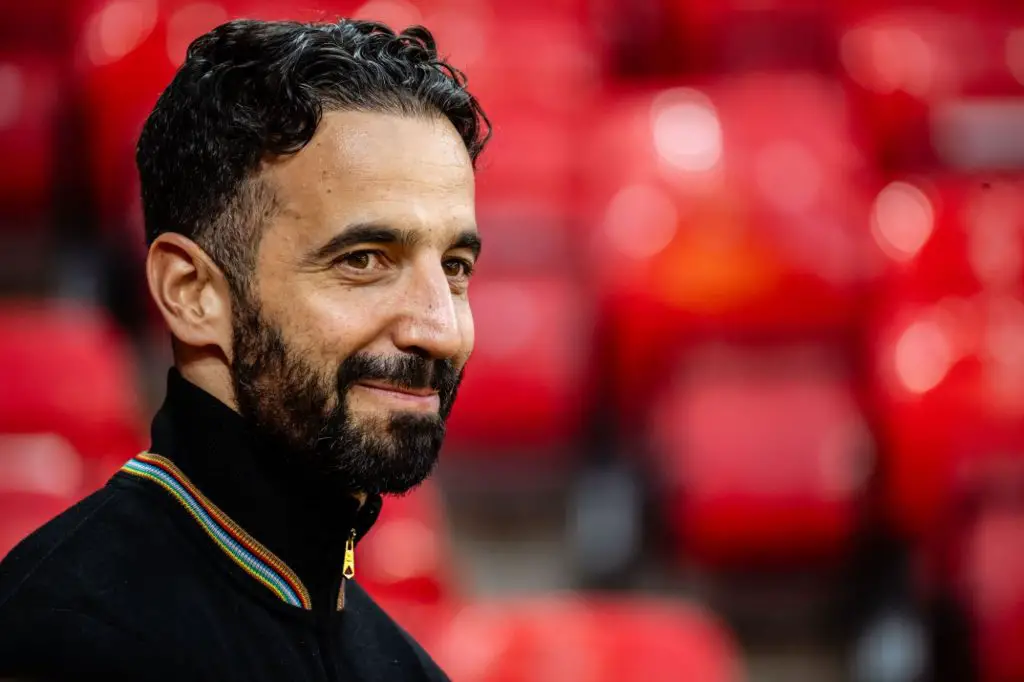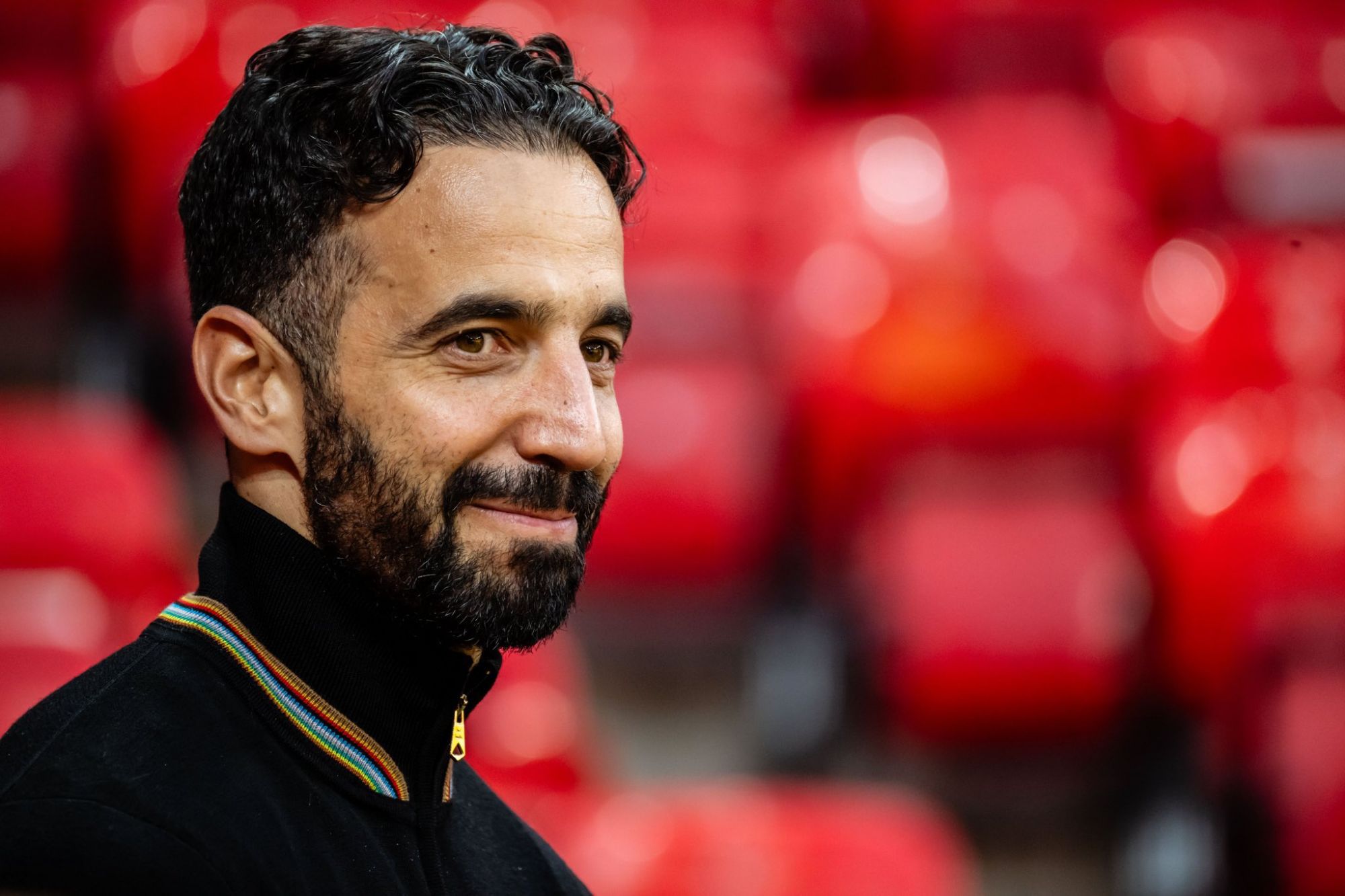
In a move that has sent ripples through the footballing world, Manchester United have announced the appointment of Ruben Amorim as their new head coach. This decision marks a pivotal shift for a club yearning for a return to its former glory. Here, we delve into what Amorim’s arrival could mean for Manchester United, examining his tactical genius, his history of nurturing talent, and how his presence might elevate the club’s performance both domestically and in Europe.
A Tactical Maestro at the Helm
Ruben Amorim, known for his innovative 3-4-3 formation, brings a dynamic and fluid style of play to Old Trafford. His philosophy revolves around:
Possession and Control: Amorim’s teams are famed for their high possession rates, with a focus on short passes and building from the back. This could significantly improve United’s ball retention, reducing the pressure on their defense, particularly in tight, high-stakes matches.
Aggressive Pressing: His high defensive line and intense pressing game could transform United into a more proactive team, potentially turning their midfield into a battleground where they dictate the tempo. This approach has been successful at Sporting Lisbon, where his team not only dominated possession but also excelled in winning the ball back quickly.
Flexibility in Formation: While Amorim has a preferred system, his adaptability was highlighted when Sporting beat Manchester City. This flexibility could be crucial for United, especially in adapting to the Premier League’s ever-changing tactical landscape.
To
Player Development and Integration
Amorim’s track record in developing players is one of his most compelling attributes:
Youth Development: At Sporting, Amorim nurtured talents like Matheus Nunes and took players like Pedro Porro to new heights. This focus on youth could rejuvenate United’s squad, potentially unlocking the full potential of players like Kobbie Mainoo or Alejandro Garnacho.
Tactical Fit Over Fame: His approach often sees him prioritizing players who fit his system over big-name signings. This could lead to a more cohesive team unit, where every player’s role is clear, enhancing team performance and unity on the pitch.
Improving Existing Stars: Players like Bruno Fernandes could see a revitalization under Amorim. His tactical setup demands creativity from midfield, which could play perfectly into Fernandes’ strengths, potentially leading to a renaissance in his performance.
Impact on Manchester United’s Squad
Defensive Structure: The introduction of a back three could bolster United’s defense, making it more robust and less prone to the counter-attacks they’ve often suffered from. Players like Lisandro Martínez and Raphael Varane might thrive in a system that values their ability to play out from the back.
Midfield Dynamics: Amorim’s double pivot in midfield could see a revitalization of players like Casemiro, providing him with a role that maximizes his defensive capabilities while supporting the attack.
Wing-Backs: The role of wing-backs in his system is pivotal, offering width and creativity. Diogo Dalot and Luke Shaw could find new dimensions to their game in these positions, enhancing United’s attacking options from the flanks.
Cultural and Philosophical Shift
Intensity and Work Ethic: Amorim’s emphasis on intensity, as noted in early discussions with United’s directors, suggests a cultural shift towards a more workmanlike, resilient team ethos. This could address criticisms of United’s recent lack of fight in crucial games.
Restoring United’s Identity: With a history of success under Sir Alex Ferguson, United fans crave identity. Amorim’s philosophy could bring back the days when United were feared for their footballing intelligence and relentless pursuit of victory.
SEO Optimization for Football Fans
Keywords: Ruben Amorim, Manchester United, Football Tactics, Player Development, Premier League, Sporting Lisbon, 3-4-3 Formation, Youth Academy, Team Building.
Meta Description: Discover how Ruben Amorim could revolutionize Manchester United with his tactical prowess, youth development focus, and dynamic football philosophy. Dive into an in-depth analysis of what this new era might hold for the Red Devils.
Headings: Use H2 for major sections like “Tactical Maestro”, “Player Development”, “Squad Impact”, and H3 for sub-sections detailing specific impacts or strategies.
Ruben Amorim’s appointment is not just a change in management; it’s a strategic overhaul aimed at redefining Manchester United in the modern football era. With his tactical acumen, focus on youth, and a playing style that could both excite and intimidate, United fans might just be on the cusp of witnessing their club’s resurgence. As the Premier League and European football watch eagerly, Amorim’s stint at United could be the narrative of the next chapter in one of football’s most storied clubs.


